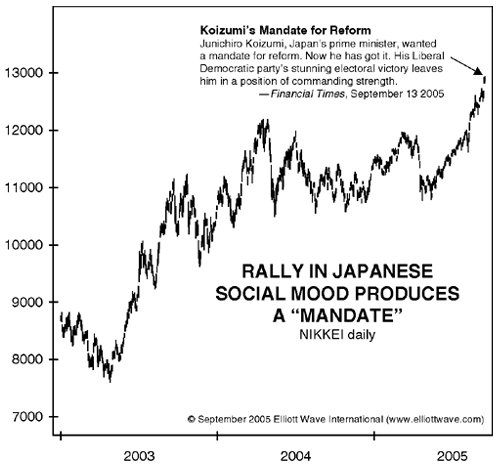Japan's post-war experience dramatically demonstrates the positive effect of a rising social mood on parties and candidates that are in power. The Liberal Democratic Party was formed near the start of a bull market that took the Nikkei up almost 40X from 1950 to 1990. At the end of that bull market, the party's political control was ironclad as there was not even an effective second party. But our chart of the Nikkei, Japan's major stock market average, against key political and economic milestones over the last 55 years shows how pefectly the emeregence of a two-party system fit in with the averages 13-year decline through April 2003. To view the chart, click here.
In a major surprise, the Democrats' challenge all but collapsed this past weekend. A Morgan Stanley analyst described the election result as "stunning beyond belief." Socionomically, a "disheartening plunge" for the challenging party should not be a suprise but an expectation. It's just one more example of the power incumbents invariably acquire when social mood trends higher. Within the U.S., a strong and persistent trend in the stock market has an umblemished record of determining whether an incumbent president will be re-elected in a landslide or defeated in one. "In all cases where an incumbent remained in office in a landslide," EWT reported in November 1999, "the stock market’s trend was up. In all cases where an incumbent was rejected by a landslide, the stock market’s trend was down." The chart below offers a close up of the upward action that produced the latest political landslide for a sitting political leader.

|
